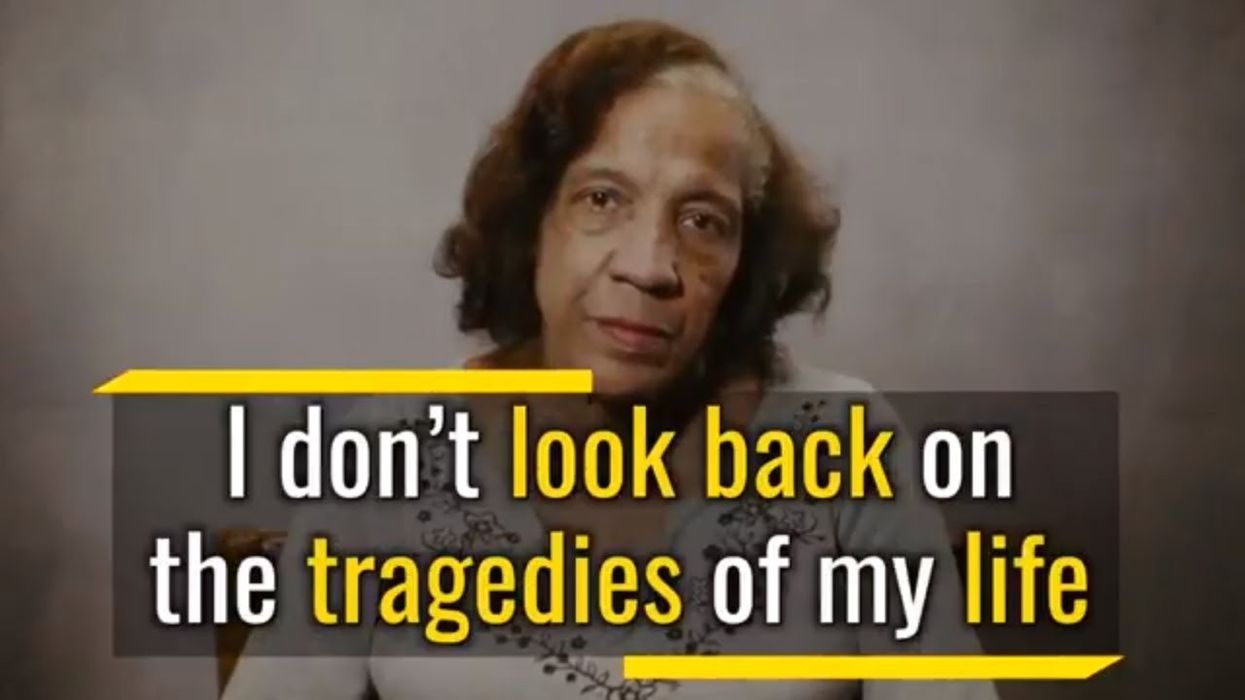Save what you have to double what you make.
Everyone talks about money -- some because they don’t have enough, some wish to make more, and some are simply obsessed with it. It has always been this way, but nowadays, making money seems to be the main goal on everyone’s 'to do' list.
We’ve never had so many options when it comes to products, technology and services, and salesmen constantly try to convince us that we need them all to live a happier and easier life. But do we?
In the past, people didn’t have so much to choose from. Now, we want the blender with six functions that we don’t even use. We want the expensive clothes that we don’t even like, but they are “trendy” so we still buy them to impress others around us.
In the pursuit of getting all the things we want, but don’t need, we lose precious time, relationships, and ultimately ourselves. Of course, money is a means to an end. We need it for comfort, education, medical procedures and so on, but we should always remember that there’s so much to this life.

Here are 150 money quotes that will change your perspective on making money:
Money motivation quotes
As mentioned above, we need money -- maybe for some of the things we’ve never had, maybe for basic necessities. Whatever our goal may be, money will be part of our lives, like it or not. We should strive for a better today for ourselves and our families, just as long we don’t forget that we’re on this Earth to make each minute count, and money isn’t everything.
If you need a few words to get you going even when you don’t feel like it, check out our list of money motivation quotes:
Rich people believe ‘I create my life’. Poor people believe ‘Life happens to me’.
T. HARV EKER
Don’t just make money, make a difference.
GRANT CARDONE
Money moves from those who do not manage it to those who do.
DAVE RAMSEY
Early to bed and early to rise makes a man healthy, wealthy, and wise.
BENJAMIN FRANKLIN (more Benjamin Franklin quotes)
Money can’t buy happiness, but it will certainly get you a better class of memories.
RONALD REAGAN (more Ronald Reagan quotes)
Money won’t create success, the freedom to make it will.
NELSON MANDELA
Rich people focus on opportunities. Poor people focus on obstacles.
T. HARV EKER
Money has no grey areas. You either make it or you lose it.
KEVIN O’LEARY
It’s not about the money. It’s about the life I want to live.
UNKNOWN
Make your goal more than money. Make it about helping people and creating a better future.
MAXIME LAGACÉ
To fulfill a dream, to be allowed to sweat over lonely labor, to be given a chance to create, is the meat and potatoes of life. The money is the gravy.
BETTE DAVIS
The goal isn’t more money. The goal is living life on your terms.
CHRIS BROGAN
You have to be myopic and completely focused and unbalanced in every way. Once you’ve achieved success, you’re free to do whatever you like.
KEVIN O’LEARY
My formula for success is rise early, work late and strike oil.
J. PAUL GETTY
It is better to have a permanent income than to be fascinating.
OSCAR WILDE
Fortune sides with him who dares.
VIRGIL
Opportunity is missed by most people because it is dressed in overalls and looks like work.
THOMAS EDISON
I’m hard working, frugal, steadfast, willing to learn and to build a credible name.
LI KA SHING
What matters is that you achieve success and become free. Then you can do whatever you like.
KEVIN O’LEARY
Keep your eye on the goal, keep moving toward your target.
T. HARV EKER
Where the determination is, the way can be found.
GEORGE S. CLASON
I always knew I was going to be rich. I don’t think I ever doubted it for a minute.
WARREN BUFFETT
Saving money quotes
Saving money should not be an option, it should be a rule. Regardless of how big or small your income is, you should make an effort in putting al least 10% away into your savings account. The unpredictable is part of our lives and you can’t never know when or for what you’ll need a certain amount of money. It is always better to have some at hand rather than searching for people who would loan you the amount you need.
Save money for a brighter future, save for the sake of saving, or save for a beautiful holiday with your dear ones. Stop spending money on things you don’t really need, you’ll thank us later. Check out best saving money quotes.
Stop buying things you don’t need, to impress people you don’t even like.
SUZE ORMAN
I make myself rich by making my wants few.
HENRY DAVID THOREAU (more Henry David Thoreau quotes)
That man is richest whose pleasures are cheapest.
HENRY DAVID THOREAU
Money is numbers and numbers never end. If it takes money to be happy, your search for happiness will never end.
BOB MARLEY
Don’t let making a living prevent you from making a life.
JOHN WOODEN
It is not the man who has too little, but the man who craves more, that is poor.
SENECA
We buy things we don’t need with money we don’t have to impress people we don’t like.
TYLER DURDEN (FIGHT CLUB)
I don’t care too much for money, for money can’t buy me love.
THE BEATLES
Money may be spent but never squandered.
LI KA SHING
If you didn’t get the deferred-gratification gene, you’ve got to work very hard to overcome that.
CHARLIE MUNGER
The rich invest their money and spend what is left; the poor spend their money and invest what is left.
JIM ROHN
It’s not how much money you make, but how much money you keep, how hard it works for you, and how many generations you keep it for.
ROBERT T. KIYOSAKI
Never spend your money before you have it.
THOMAS JEFFERSON
Making money quotes
Probably, everyone you know is concerned about how to make more money. There is nothing wrong with that. But as a smart person you know you need to set up some goals first. And you need a certain mindset if you want to achieve your goals -- you need to think like a rich man, even if you have $20 in your pocket. How to change your mindset? Maybe some of the following making money quotes will teach you a thing or two about how to dream big.
The rich invest in time, the poor invest in money.
WARREN BUFFETT (more Warren Buffett quotes)
If you make meaning, you’ll make money.
GUY KAWASAKI
Trade money for time, not time for money. You’re going to run out of time first.
NAVAL RAVIKANT
If it’s only about money we are hopeless. If it’s about people we are hopeful.
MAXIME LAGACÉ
Formal education will make you a living. Self-education will make you a fortune.
JIM ROHN
The best way to become a billionaire is to help a billion people.
PETER DIAMANDIS
Focusing your life solely on making a buck shows a poverty of ambition. It asks too little of yourself. And it will leave you unfulfilled.
BARACK OBAMA
We don’t make movies to make money, we make money to make more movies.
WALT DISNEY
Money is not the only answer, but it makes a difference.
BARACK OBAMA
If you can get paid for doing what you love, every paycheck is a bonus.
OPRAH WINFREY
Simply put: we don’t build services to make money; we make money to build better services. And we think this is a good way to build something.
MARK ZUCKERBERG
We have always believed that it’s possible to make money without being evil.
LARRY PAGE
Capital as such is not evil; it is its wrong use that is evil. Capital in some form or other will always be needed.
MAHATMA GANDHI
If you cannot control your emotions, you cannot control your money.
WARREN BUFFETT
Anyone who lives within their means suffers from a lack of imagination.
OSCAR WILDE
The funny thing is, the people who work really hard, they work really hard so they can sit on their ass – they just want to sit on their ass in nicer surroundings.
KARL PILKINGTON
I find out what the world needs. Then, I go ahead and invent it.
THOMAS A. EDISON
There is gold everywhere. Most people are not trained to see it.
ROBERT T. KIYOSAKI
Like Warren, I had a considerable passion to get rich, not because I wanted Ferraris – I wanted the independence. I desperately wanted it.
CHARLIE MUNGER
If your goal is to be comfortable, chances are you’ll never get rich. But if your goal is to be rich, chances are you’ll end up mighty comfortable.
T. HARV EKER
Rich people act in spite of fear. Poor people let fear stop them.
T. HARV EKER
Rich people choose to get paid based on results. Poor people choose to get paid based on time.
T. HARV EKER
Opportunity is a haughty goddess who wastes no time with those who are unprepared.
GEORGE S. CLASON
If you don’t find a way to make money while you sleep, you will work until you die.
WARREN BUFFETT
I don’t want to make money. I just want to be wonderful.
MARILYN MONROE
If you don’t get serious about your money you will never have serious money.
GRANT CARDONE
It’s simple arithmetic: ‘Your income can grow only to the extent you do’.
T. HARV EKER
The more money you make the more problems you get.
CHRISTOPHER GEORGE LATORE WALLACE (NOTORIOUS B.I.G.)
Advertising is the art of convincing people to spend money they don’t have for something they don’t need.
WILL ROGERS
Short money quotes
In only a few words, the following short money quotes will definitely impress you. Most of them are from famous people who already know what it’s like to afford everything they want. Is money everything? Find out from our list of short money quotes that can also make great captions for your social media posts.
The more you learn, the more you earn.
WARREN BUFFETT
Earn with your mind, not your time.
NAVAL RAVIKANT
There are people who have money and people who are rich.
COCO CHANEL
Money is a great servant but a bad master.
FRANCIS BACON
All the money you made will never buy back your soul.
BOB DYLAN (more Bob Dylan quotes)
When I had money everyone called me brother.
POLISH PROVERB
Not he who has much is rich, but he who gives much.
ERICH FROMM
Whoever loves money will never have enough.
ECCLESIASTES 5:10
When it is a question of money, everybody is of the same religion.
VOLTAIRE
Be your money’s master, not its slave.
PUBLILIUS SYRUS
Money doesn’t buy happiness – it buys freedom.
NAVAL RAVIKANT
It does not take money to make money.
ROBERT T. KIYOSAKI
All money is a matter of belief.
ADAM SMITH
A man in debt is so far a slave.
RALPH WALDO EMERSON
Don’t go broke trying to go rich. Unknown
UNKNOWN
Money doesn’t change people. It unmasks them.
UNKNOWN
Money grows on the tree of persistence.
JAPANESE PROVERB
If money’s where you find happiness, you’ll always be poor.
NF
Words are the money of fools.
THOMAS HOBBES
Money is power.
UNKOWN
Money is like fire.
P.T. Barnum
Wealth quotes
Most people that have struggled in life think that money would solve all their problems. Most people that have enough money know that true wealth means more than just having loads of money. True wealth is also about having healthy relationships and people you can rely on because you know… at the end of the day, some things can’t be bought.
There are a great many people accumulating what they think is vast wealth, but it’s only money.
ALAN WATTS
Possession make you rich? I don't have that type of richness. My richness is life, forever.
BOB MARLEY (more Bob Marley quotes)
The money you have gives you freedom; the money you pursue enslaves you.
JEAN-JACQUES ROUSSEAU
I think everybody should get rich and famous and do everything they ever dreamed of so they can see that it’s not the answer.
JIM CARREY
Spend your money on the things money can buy. Spend your time on the things money can’t buy.
HARUKI MURAKAMI
The rich cannot accumulate wealth without the co-operation of the poor in society.
MAHATMA GANDHI
Invest in as much of yourself as you can, you are your own biggest asset by far.
WARREN BUFFETT
The ultimate purpose of money is so that you do not have to be in a specific place at a specific time doing anything you don’t want to do.
NAVAL RAVIKANT
Seek wealth, not money or status. Wealth is having assets that earn while you sleep. Money is how we transfer time and wealth. Status is your place in the social hierarchy.
NAVAL RAVIKANT
You have reached the pinnacle of success as soon as you become uninterested in money, compliments, or publicity.
THOMAS WOLFE
Wealth is not about having a lot of money; it’s about having a lot of options.
CHRIS ROCK
My favorite things in life don’t cost any money. It’s really clear that the most precious resource we all have is time.
STEVE JOBS
There is only one boss. The customer. And he can fire everybody in the company from the chairman on down, simply by spending his money somewhere else.
SAM WALTON
Success is having to worry about every damn thing in the world, except money.
JOHNNY CASH
Rich people are committed to being rich. Poor people want to be rich.
T. HARV EKER
Rich people think big. Poor people think small.
T. HARV EKER
Some people are so poor, all they have is money.
UNKNOWN
Money is a way of measuring wealth but is not wealth in itself.
ALAN WATTS
A rich man is nothing but a poor man with money.
W. C. FIELDS
The fools in life want things fast and easy — money, success, attention.
ROBERT GREENE
Rich people play the money game to win. Poor people play the money game to not lose.
T. HARV EKER
Someone’s sitting in the shade today because someone planted a tree a long time ago.
WARREN BUFFETT
Rich people have small TVs and big libraries, and poor people have small libraries and big TVs.
ZIG ZIGLAR
Women and wine, game and deceit, make the wealth small and the wants great.
BENJAMIN FRANKLIN
We make a living by what we get, but we make a life by what we give
WINSTON CHURCHILL
An investment in knowledge pays the best interest
BENJAMIN FRANKLIN
Funny money quotes
In the right context, jokes about money can be hilarious. Whether you’ve never had it and choose to share some of those experiences, or maybe you have just about enough and still find something funny to say about it. If your financial status is not at its best yet, don’t get offended when a rich person tells a joke. Remember, it’s all in the context.
I’d like to live as a poor man with lots of money.
PABLO PICASSO
Money is like manure. You have to spread it around or it smells.
J. PAUL GETTY
Money is the best deodorant.
ELIZABETH TAYLOR
Lottery: A tax on people who are bad at math.
AMBROSE BIERCE
Money, like vodka, turns a person into an eccentric.
ANTON CHEKHOV
I've never been a millionaire but I know I'd be just darling at it.
DOROTHY PARKER
Does running out of money count as exercise?
UNKNOWN
It’s amazing how fast later comes when you buy now.
MILTON BERLE
Most people work just hard enough not to get fired and get paid just enough money not to quit.
GEORGE CARLIN (more George Carlin quotes)
A bank is a place that will lend you money if you can prove that you don’t need it.
BOB HOPE
Men are like bank accounts. Without a lot of money they don’t generate a lot of interest.
UNKNOWN
Taking drugs and thinking that you are happy is like taking a loan and thinking you have money.
THIBAUT
There’s no money in poetry, but then there’s no poetry in money, either.
ROBERT GRAVES
People say that money is not the key to happiness, but I always figured if you have enough money, you can have a key made.
JOAN RIVERS
If you want to know what God thinks of money, just look at the people he gave it to.
DOROTHY PARKER
Inflation is taxation without legislation.
MILTON FRIEDMAN
Money and women are the most sought after and the least known about of any two things we have.
WILL ROGERS
The quickest way to double your money is to fold it in half and put it in your back pocket.
WILL ROGERS
If you think nobody cares if you’re alive, try missing a couple of car payments.
EARL WILSON
Giving money and power to government is like giving whiskey and car keys to teenage boys.
P. J. O’ROURKE
Money can buy you a fine dog, but only love can make him wag his tail.
KINKY FRIEDMAN
Whoever said money can’t buy happiness simply didn’t know where to go shopping.
GERTRUDE STEIN
I put a dollar in one of those change machines. Nothing changed.
GEORGE CARLIN
Money affirmations
Regardless of your current financial status, try to picture a future where you have everything you need: the house of your dreams, enough savings or a business that brings you the right amount of satisfaction, moneywise. It’s not impossible! You can always dream big then take the right steps that will lead you to so many accomplishments.
The following money affirmations will help you set and focus on goals that you can later turn into actionable financial goals.
I experience wealth as a key part of my life.
UNKNOWN
I am capable of overcoming any money-obstacles that stand in my way.
UNKNOWN
I can conquer my money goals.
UNKNOWN
Today I commit to living my financial dreams.
UNKNOWN
I want more money. And that's okay.
UNKNOWN
It's easy and natural for me to be prosperous and successful.
UNKNOWN
My life is filled with health and wealth.
UNKNOWN
Abundance is coming, I deserve and accept it.
UNKNOWN
I accept and receive unexpected prosperity.
UNKNOWN
I have more than enough money.
UNKNOWN
I deserve to make more money.
UNKNOWN
I am always discovering new sources of income.
UNKNOWN
Money comes my way in both expected and unexpected ways.
UNKNOWN
I am open to receiving all wealth life brings to me.
UNKNOWN
I’m not poor, I'm just low wealth right now. That is changing.
UNKNOWN
I’m getting out of my own way when it comes to money.
UNKNOWN

























 Man working his way up
Man working his way up 











